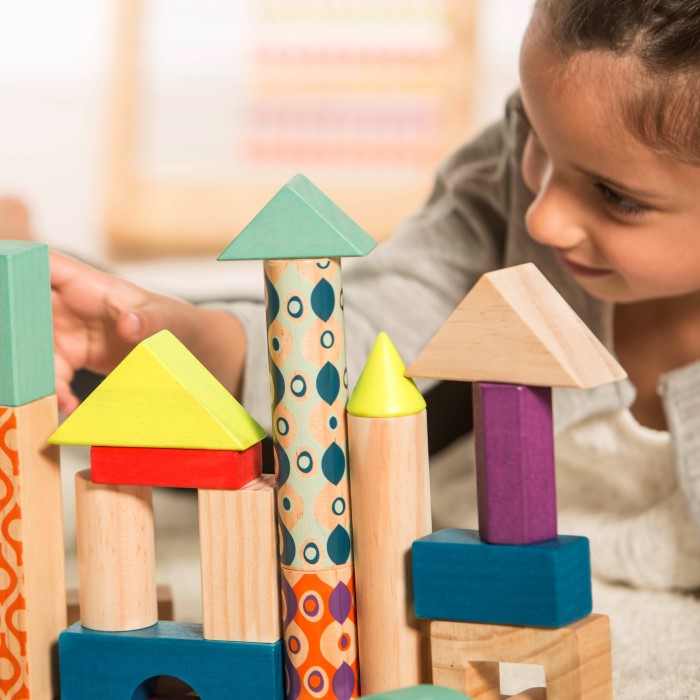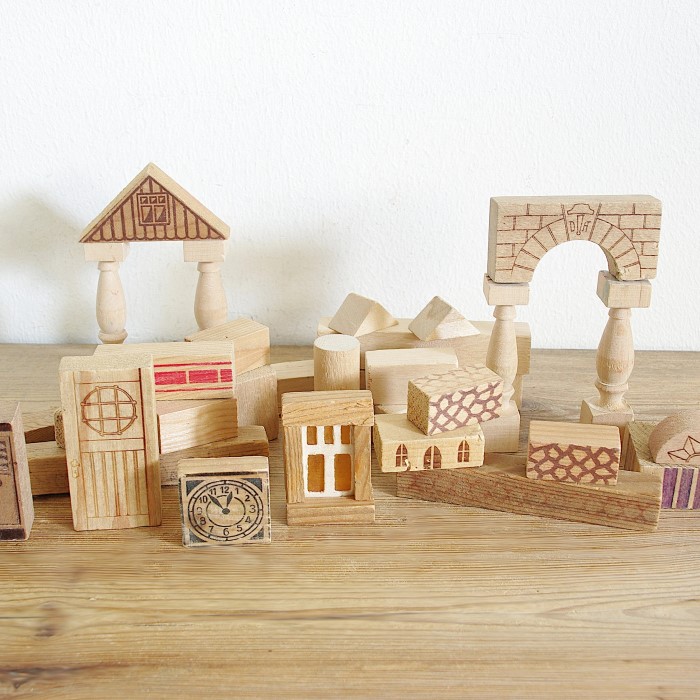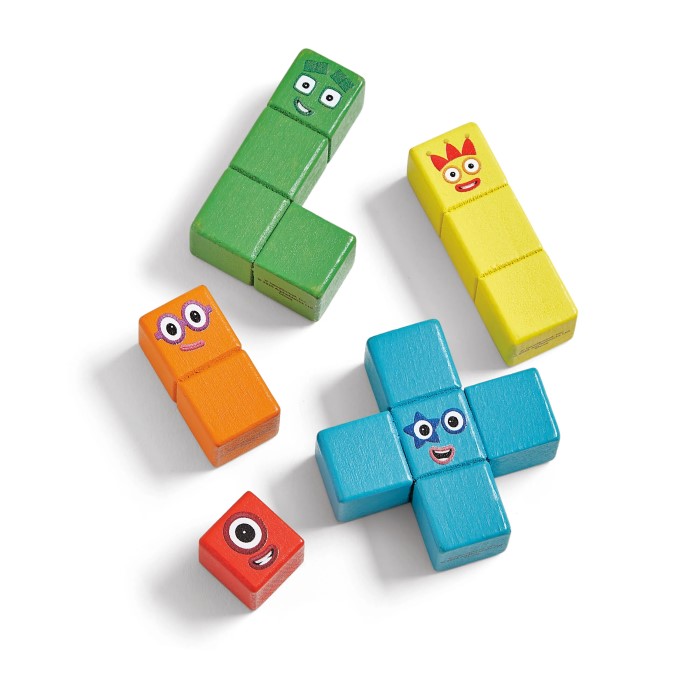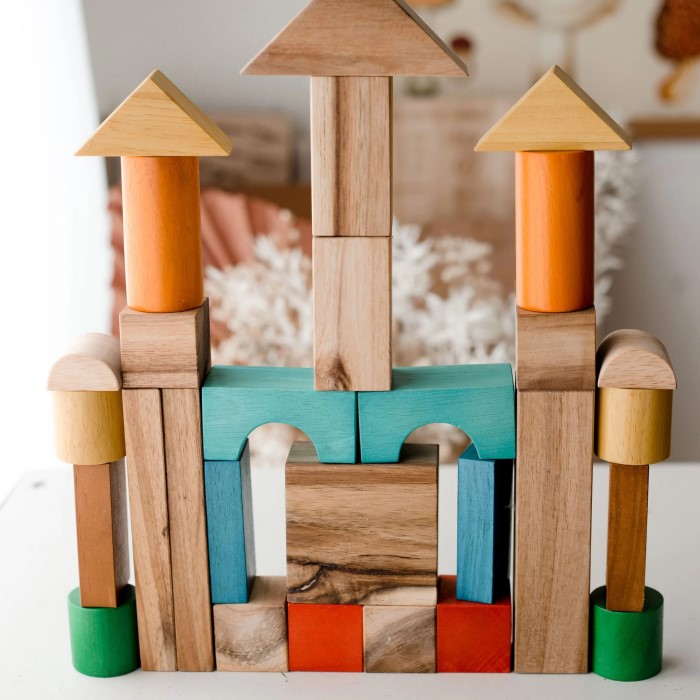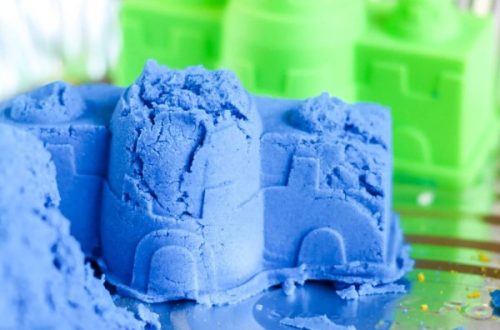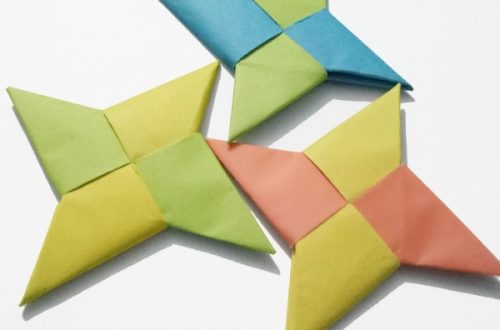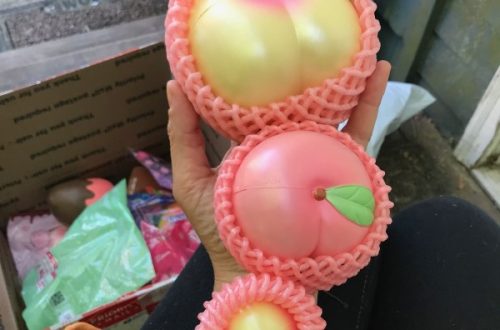Introduction
When it comes to children’s toys, wooden toy blocks hold a special place in the hearts of both parents and educators. These simple yet versatile toys have been around for generations. Their popularity endures because they offer extensive benefits that stimulate young minds. From fostering creativity to enhancing cognitive development, wooden toy blocks provide children with opportunities for growth and learning in a fun environment. In this article, we will explore the valuable benefits of wooden toy blocks for kids, illustrating how these classic toys can build skills and bring joy into their lives.
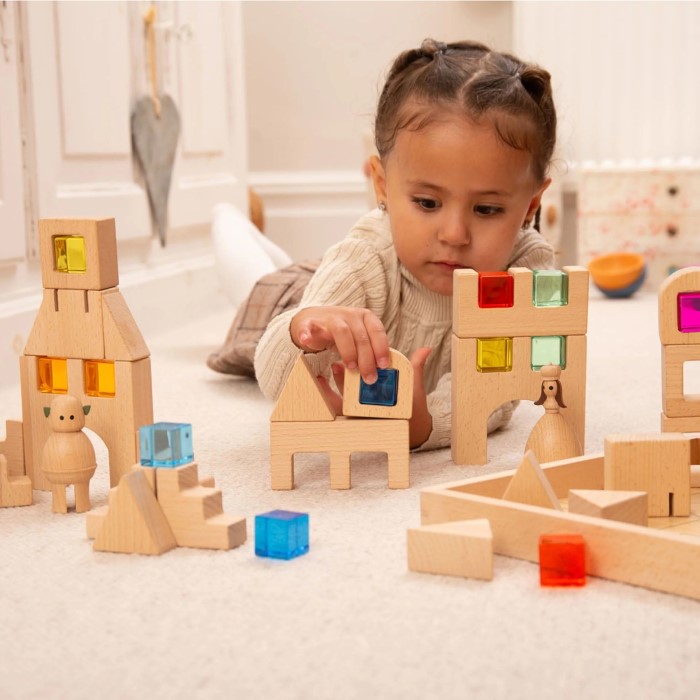
The Appeal
Wooden toy blocks have been loved for generations. Their simplicity and functionality create endless play possibilities.
Timeless Design and Durability
Wooden toy blocks are built to last. They resist wear and tear compared to plastic toys. Their classic designs stay relevant and appealing over time. Parents value wooden blocks because they rarely break. This ensures a longer lifespan, making them economical and sustainable.
Natural and Safe Materials for Children
Wooden blocks are made from natural materials, providing a safe choice for play. Unlike plastic toys, they don’t contain harmful chemicals. Most wooden blocks are painted with non-toxic finishes, ensuring child safety. Parents appreciate the eco-friendly nature, knowing their children are playing with a green option.
Cognitive Development Through Wooden Blocks
Wooden toy blocks are more than just toys; they are tools for cognitive growth. Playing with them encourages mental challenges that aid in brain development. These simple, timeless toys allow children to learn through hands-on exploration and problem-solving.
Enhancing Problem-Solving Skills
Building structures with wooden toy blocks teaches children how to solve problems effectively. They learn balance, stability, and how to fit pieces together to create their designs. When their structures collapse, kids actively assess what went wrong and try again. This repetitive effort strengthens their critical thinking and perseverance.
Moreover, wooden toy blocks promote trial-and-error learning. Children test different ideas to find the best solutions. For example, they may experiment with shapes to form a sturdy base or use smaller blocks for decorative elements. These actions develop logical thinking and decision-making skills that benefit them throughout life.
Stimulating Imaginative Play and Creativity
Wooden toy blocks offer limitless possibilities for imaginative play. Unlike toys with fixed designs, blocks give children the freedom to create anything they imagine. Whether it’s a castle, car, or animal, kids can invent and personalize their creations.
These blocks also encourage storytelling. Children often create scenarios around the structures they build, expressing their creativity through narratives. For instance, they may imagine their block tower as part of a magical kingdom. This type of play strengthens their communication and artistic skills.
Wooden toy blocks also inspire open-ended play. Without specific instructions, kids explore shapes, textures, and designs in their unique ways. This independence fosters curiosity and boosts creative thinking, making wooden blocks invaluable for cognitive growth.
Physical Benefits of Playing with Wooden Blocks
Playing with wooden toy blocks isn’t just fun; it also supports healthy physical development for children. These simple yet effective toys encourage important motor skills and coordination through interactive play.
Developing Fine Motor Skills
Wooden toy blocks help children refine their fine motor skills. Grasping and stacking blocks require precise finger movements. Through repetitive actions, kids strengthen their hand muscles and improve flexibility.
As kids stack, sort, or position blocks, they practice controlled hand movements. Fine motor skill development supports tasks like writing, drawing, and using tools later in life. Manipulating shapes also enhances finger strength and dexterity.
Wooden blocks come in various sizes and shapes. This variety challenges kids to pick and place blocks carefully. Smaller blocks, especially, demand advanced finger control, promoting the growth of fine motor abilities.
Encouraging Hand-Eye Coordination
Building with wooden toy blocks teaches essential hand-eye coordination. Children focus on aligning blocks while using their hands to place them. This synchronization sharpens their ability to connect visual input with physical actions.
Stacking blocks requires intentional control and focus. Kids learn to judge space and determine block placement. This leads to improved accuracy and steady movements over time.
When a tower collapses, children try again, improving their reaction speed and coordination. Wooden blocks provide a playful way to strengthen these vital skills for many activities in daily life.
Social and Emotional Growth
Wooden toy blocks promote social and emotional development in children. They encourage teamwork and foster patience.
Fostering Teamwork and Cooperation
Playing with wooden toy blocks in groups helps children develop teamwork and cooperative skills. Kids work together to build structures, creating a shared sense of purpose. They exchange ideas, share responsibilities, and solve problems together. These interactions teach valuable communication and collaboration skills. Children also learn to compromise and respect each other’s ideas during group play. By working towards a common goal, they build strong social bonds.
Parents and caregivers can encourage teamwork by organizing group building activities. For example, kids can work on constructing a city or bridge together. These experiences improve their social skills and understanding of teamwork, which are essential for their future.
Building Confidence and Patience
Wooden blocks help boost children’s confidence through successful problem-solving experiences. Each completed structure becomes a small accomplishment, encouraging a sense of pride. As children experiment and succeed, their self-esteem grows.
Patience is another important skill children develop while playing with wooden blocks. Building tall towers or complex designs takes time and focus. When structures collapse, kids learn the value of persistence and trying again. This process teaches resilience and helps them manage frustration constructively.
Through repeated play, kids also become more focused and determined. The consistent effort required to achieve their goals reinforces patience and boosts confidence. These emotional skills benefit children beyond play, helping them in real-world challenges.
Educational Advantages
Wooden toy blocks not only spark creativity and fun but also provide numerous educational benefits for children. Playing with these versatile toys can enhance a child’s understanding of crucial academic concepts, setting a strong foundation for future learning.
Introducing Basic Math and Geometry Concepts
Wooden toy blocks introduce essential math concepts in a fun and engaging way. As children sort and stack blocks, they practice counting and learn about numbers. Grouping blocks by size, shape, or color can also teach basic classification skills.
Geometry becomes accessible as kids work with different shapes like cubes, rectangles, or triangles. They explore how these shapes fit together, which builds an understanding of spatial relationships. For example, creating patterns or symmetrical designs introduces them to concepts like symmetry and balance.
Blocks can also help children grasp measurement and proportions. Aligning blocks of different lengths or creating structures of varying heights teaches them about size and scale. These activities naturally integrate math learning into play, making abstract concepts more concrete.
Promoting Spatial Awareness and Engineering Skills
Wooden blocks support the development of spatial awareness and early engineering skills. As children build, they visualize how different pieces fit together. This improves their ability to mentally rotate and manipulate objects in space, a key skill for problem-solving and STEM learning.
Creating sturdy structures with wooden blocks helps kids understand balance, weight distribution, and structural integrity. For instance, building a tall tower teaches them to create a strong base for stability. These hands-on experiences introduce basic engineering principles in a playful manner.
Spatial awareness is further enhanced as kids experiment with stacking, aligning, and arranging blocks. They learn to judge distances, angles, and spatial orientation. These abilities are essential for activities like reading maps, solving puzzles, and even playing sports.
Through wooden toy blocks, children naturally explore STEM concepts, helping them grow into thinkers and problem-solvers. By combining play with learning, these blocks offer a perfect blend of education and enjoyment.
Environmental Benefits
Wooden toy blocks offer impressive environmental benefits compared to many other toys. They promote sustainability and a healthier play environment for children. Their eco-friendly qualities and minimalistic nature make them a responsible choice for families.
Eco-Friendly and Sustainable Toy Option
Wooden toy blocks are made from natural, renewable materials like wood. Unlike plastic toys, they decompose over time, reducing waste in landfills. Many brands use sustainably sourced wood, ensuring minimal environmental impact.
The production of wooden blocks often involves less energy consumption. This makes their manufacturing process more eco-friendly compared to synthetic toys. Additionally, they tend to last longer due to their durability, which reduces the need for frequent replacements. Families cherish these blocks, often passing them down through generations, a testament to their sustainability.
When choosing wooden blocks, opt for brands that prioritize environmentally friendly practices. Certified eco-friendly options ensure that the toy’s journey—from sourcing to production—is gentle on the planet.
Encouraging a Minimalist and Non-Toxic Play Environment
Fostering a Minimalist Approach
Simplicity in Play: Wooden blocks embody a minimalist philosophy that emphasizes simplicity and functionality. Unlike electronic or overly complex toys, wooden blocks allow for open-ended play, encouraging children to use their creativity without the hindrance of flashy features.
Imaginative Exploration: With wooden blocks, children can engage in imaginative exploration, building structures and designs limited only by their creativity. This hands-on approach fosters problem-solving skills and independent thinking, as children must figure out how to balance and fit the pieces together.
Mindful Play: By minimizing distractions and providing a simple medium for play, wooden blocks promote a more mindful approach to childhood activities. Children can concentrate better on their creations, which enhances their engagement and enjoyment during playtime.
Safety and Non-Toxic Materials
Use of Non-Toxic Finishes: Most reputable wooden block manufacturers prioritize the safety of their products by using non-toxic stains, paints, and finishes. These materials ensure that children can explore and play without exposure to harmful chemicals.
Comparison to Plastic Toys: Unlike plastic toys that often contain harmful substances like phthalates or BPA, wooden blocks offer a safer alternative. They do not leach toxic chemicals, thus reducing the risk of ingestion and ensuring a healthier play environment for young children.
Healthier Play Environment: The choice of non-toxic materials not only protects children’s health but also contributes to a safer overall environment in the home. Parents can feel confident that their children are playing with safe, natural products that promote well-being.
Aesthetic Appeal for Parents
Natural Aesthetic: Wooden blocks have a warm, inviting appearance that many parents find aesthetically pleasing. Their natural look can seamlessly blend into home decor, creating a harmonious space for both play and relaxation.
Promoting Clutter-Free Spaces: Given their versatility, wooden blocks can be easily stored and displayed. Parents appreciate the ease with which these blocks can be organized, helping to maintain a clutter-free play area that doesn’t overwhelm living spaces.
Alignment with Sustainable Living: The minimalist approach inherent in wooden block play aligns well with sustainable living values. Parents who prioritize eco-friendly choices appreciate how wooden toys reflect a commitment to the environment.
Simplicity and Eco-Consciousness Combined
Joyful Learning Through Simple Toys: Wooden blocks demonstrate that simplicity in toys can lead to significant developmental benefits. The tactile nature of wooden blocks engages children’s senses and fosters imaginative play, showing that complex toys are not necessary for joy and learning.
Eco-Friendly Choices: By choosing wooden blocks, parents contribute to eco-conscious practices. Many wooden toys are sourced from sustainable forests and are biodegradable, reducing their environmental impact compared to plastic alternatives.
Connection to Nature: Introducing wooden toys into playtime nurtures a connection to nature. Children can learn to appreciate natural materials and the importance of sustainability from a young age, fostering a sense of responsibility for the environment.
Tips for Choosing the Right Wooden Blocks
Selecting the ideal wooden toy blocks ensures safety and engagement for children. Thoughtful choices enhance playtime quality.
Age-Appropriate Designs and Sizes
Choose blocks suitable for your child’s age to promote safe and enjoyable play. Large blocks work best for toddlers to avoid choking hazards. Smaller, intricate blocks are better for older kids who need more challenge.
Consider the complexity of the block sets. Simple designs help younger kids explore basic stacking and sorting. Advanced sets with unique shapes suit older children, encouraging creative projects.
Bright colors and engaging patterns can capture children’s attention and stimulate visual learning. Ensure the blocks are lightweight for easy handling by little hands.
Quality and Safety Considerations
Prioritize high-quality wooden toy blocks to ensure durability and long-term use. Look for blocks made from solid wood that resist damage. Smooth edges and surfaces prevent scratches or splinters.
Verify that the blocks use non-toxic paints and finishes. Safe coatings avoid harmful chemicals, making them suitable for chewing or mouthing.
Select blocks from reputable brands that meet safety standards. Certified options guarantee quality and care. Check for a sturdy design that withstands rough play without breaking.
Investing in quality wooden blocks benefits your child’s safety, development, and creativity.
Encouraging Lifelong Learning Through Wooden Toy Blocks
Wooden toy blocks are more than play items; they are tools for lifelong learning. Their versatility helps children develop essential skills that grow with them.
Wooden blocks teach critical thinking and creativity, skills vital in adulthood. Children learn to think independently by building unique designs and solving structural problems. These experiences promote innovative thinking, preparing them for challenges in school and life.
Moreover, they support STEM learning early on. Kids explore balance, geometry, and spatial awareness through play. These foundational skills make abstract concepts enjoyable and promote long-term academic success.
The simplicity of wooden toy blocks fosters concentration and focus. Building intricate structures enhances patience and perseverance, attributes essential for lifelong achievements.
Lastly, wooden blocks encourage collaboration and teamwork. Group play shows children how to share ideas and work towards a common goal. These social skills contribute to personal and professional success later.
Investing in wooden toy blocks provides more than entertainment; it nurtures lifelong learning and growth.
Conclusion: A Timeless Classic for Development
In conclusion, the benefits of wooden toy blocks for kids are extensive and multifaceted. These classic toys build essential skills while providing joy and creative expression. Through play, children develop cognitive abilities, social skills, and physical coordination—all while nurturing their imaginations. The longevity, safety, and versatility of wooden blocks further enhance their appeal as a learning tool. By choosing wooden toy blocks, you’re investing in your child’s development and giving them the gift of imaginative play. Embrace this timeless toy, and watch your child’s creativity and skills flourish!
